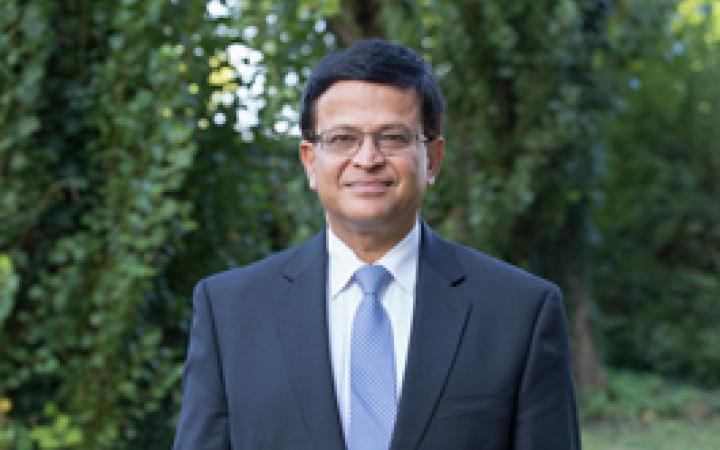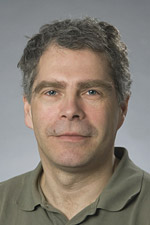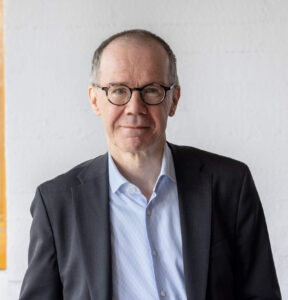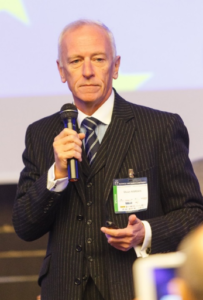
Speakers
Keynote

Tarja Halonen
Former President of Finland
As one of our keynote speakers, Tarja Halonen will be presenting on the topic of ”promises and threats of new technologies for political decision making”.
Tarja Halonen is a Finnish politician and former President of Finland (2000-2012) who has made a notably long career in Finnish politics and non-governmental sector. President Tarja Halonen is a member of many organizations and networks in Finland and abroad.
Among other positions, Halonen has been appointed as foreign affairs minister in 1995, she served as minister of social affairs and health (1987–90), minister for Nordic cooperation (1989–91), and minister of justice (1990–91). In 2010 Halonen was appointed cochair of the UN Secretary-General’s High-level Panel on Global Sustainability, which presented its recommendations two years later.
(From https://presidenthalonen.fi/en/ & https://www.britannica.com/biography/Tarja-Halonen)

Nikhil Seth
United Nations Assistant Secretary-General, Executive Director, UNITAR
Before assuming the post of the UNITAR Executive Director, Nikhil Seth was the Director of the Division for Sustainable Development, Department of Economic and Social Affairs (DESA) at the United Nations Secretariat in New York. In this role he served as head of the Rio+20 secretariat and of the secretariat for the Third International Conference on Small Island Developing States, spearheading the preparations for these conferences in Rio, Brazil, and Apia, Samoa. He was also closely engaged in coordinating and advancing their follow-up.
During his career with the United Nations since 1993, Mr. Seth has served as Special Assistant and Chief of Office to the Under-Secretary-General for Economic and Social Affairs (Sept 1993 – Jun 2001), Chief of the Policy Coordination Branch in the Division for ECOSOC Support and Coordination (Jun 2001 – Jan 2003), as Secretary of the Economic and Social Council (ECOSOC) and the Second Committee of the General Assembly (Feb 2003 – Aug 2006), and as Director of the DESA Office for ECOSOC Support and Coordination (Aug 2006 – Aug 2011), where he guided the ECOSOC’s work in implementing several new key mandates, including its Annual Ministerial Review and Development Cooperation Forum.
Speakers in alphabetical order

Reijo Aarnio
Senior Adviser, Sitra
Main panel: Governance for Whom?
Reijo is a lawyer with extensive work experience in both the private and public sectors. He is a multi-talented expert in information law and particularly in data protection. Reijo has witnessed the development of this increasingly important field of law almost since its inception.
His long experience as the Data Protection Ombudsman also enables him to see data and digital issues from a European and global perspective. (from https://www.sitra.fi/en/people/reijo-aarnio/)

Claus Bossen
Associate professor, Aarhus University, Denmark
5. Seminar: Data work as transformative power
Claus Bossen will be presenting on the topic of:
Making data work visible and appreciating it
The title of this seminar ”Data work as transformative power”, apparently includes an unusual appreciation of the work that goes into producing and using data. This contrasts dominating narratives of digitization and datafication as processes where one only need to tap into huge streams of data, refine it, and gold nuggets will come out. The work necessary to produce and use data in such narratives is invisible and unappreciated. However, making data work visible and valued will strengthen not only the functions and occupations conducting that work, but also the overall drive to use data to transform public administration to the better.
Claus Bossen’s talk will discuss the dangers inherent in neglecting data work and why we need to appreciate it through examples from ongoing research on IT and healthcare in Denmark, which has undergone profound digitization in scope and depth over the last two decades.
Heather Broomfield
Ph.d Fellow at University of Oslo & Senior Advisor Norways Digitalisation Agency
4. Workshop: Ethics of Artificial Intelligence
Jeremy Darot
Head of Artificial Intelligence, the Scottish Government
4. Workshop: Ethics of Artificial Intelligence

Venkata Gandikota
Co-Founder & President, Innofrugal
6. Seminar: Sustainability
Venkata Gandikota works with startups, businesses, R&D organizations, policymakers, and non-profits concerning Impact investing, frugal innovation, and circular economy.He has more than 15 years of experience that includes raising capital for VC funds and startups, impact investing and startup deal flow management, frugal innovation advisory, customer success, running his own market entry consulting for businesses in India and Finland, and environmental & climate research.Since 2014, he has given guest lectures on frugal innovation and impact investing topics at ISDI (MBA program), JAMK University of Applied Sciences (International Business Bachelors Program), Jyväskylä University (Business Masters Program) & Aalto University (Executive MBA Program).

Tommi Himberg
Counsellor, Permanent delegation of Finland to the OECD and UNESCO, Ministry of Foreign Affairs, Finnish Government
4. Workshop: Ethics of Artificial Intelligence
Tommi Himberg works as a counsellor on education and science policy, and follows these sectors at the OECD and UNESCO in Paris. He was the head of the Finnish delegation in the intergovernmental negotiations on the text of the Recommendation on the Ethics of AI.

Antti Honkela
Associate Professor, Department of Computer Science, University of Helsinki
2. Seminar: Privacy and sensitive data
Antti Honkela is an Associate Professor of Machine Learning and AI at the Department of Computer Science, University of Helsinki. His research focuses on privacy-preserving machine learning and differential privacy. He is the coordinating professor of the Research Programme in Privacy-Preserving and Secure AI at the Finnish Center for Artificial Intelligence (FCAI), and serves the Finnish government in multiple expert roles related to privacy in secondary use of social and health data.

Vesa Jormanainen
Senior Ministerial Advisor, Medical Affairs, Service System Unit, Ministry of Social Affairs and Health, Finland
5. Seminar: Data work as transformative power
MD, MSc, Specialist in Public Health Medicine. Current position is Senior Ministerial Advisor, Medical Affairs in the Ministry of Social Affairs and Health in Finland at Service System Unit since 2021. Previously he worked in the Finnish Institute for Health and Welfare (THL) as Chief Specialist at Performance Assessment of the Health and Social Service System. In addition, he worked in the THL as Director of Operational Management to make real large-scale implementation and adoption of the national Kanta ICT services for social welfare and healthcare services in Finland in 2010–2017. He also has experience in concept building and directing medical technology assessment at the Finnish Medicines Agency in 2009–2010. He has international working experience from major pharmaceutical companies in health economics, outcomes research and pricing as team manager. Previously he was in Board of Directors at the European Health Telematics Association (EHTEL, Brussels, Belgium). Currently he is the Chairman of the Finnish Association of Public Health Medicine and Board Member at the Finnish Society of Telemedicine and eHealth.
Mika Juuti
Kela
3. Workshop: Inclusion, Equity and Accountability
Marko Latvanen
Chief Specialist, DVV, Finland
4. Workshop: Ethics for Artificial Intelligence

Joonas Leppänen
Leading specialist, New Forms of Participation, Sitra
3. Workshop: Inclusion, Equity and Accountability
Joonas Leppänen will be presenting a talk on the topic of:
Robotic calls and AI-analysis as a new user interface for democracy
In 2021 Sitra and some municipalities conducted trials where the municipality reached out to its citizens through robotic calls. The citizens could answer freely on their experience of everyday life in the municipality. The answers were translated to text and then analyzed using a couple of different AI-solutions. The goal of the trial was to provide a new “user interface for democracy” where the initiative to frame what should be discussed in politics was given directly to the citizen in a way that did not require the citizen to be active. The trial was later “audited” with regards to democracy to identify what should be taken into account when utilizing AI for enhancing democracy and also to ensure that the ideas and wants of the citizens were not distorted by the algorithms used in the trial.
(photo from https://www.sitra.fi/en/people/joonas-leppanen/)

Heikki Mannila
Professor, Aalto University
1. Seminar: Data Literacy
Heikki Mannila is a professor of computer science at Aalto University. His research has concentrated on algorithms and data analysis, with special emphasis on multidisciplinary applications in other sciences and in industry. He has earlier worked at the University of Helsinki, in industry, and in the Academy of Finland, and he is chairing the national expert group for research on artificial intelligence and digitalization.
Janne Mattila
Kela
3. Workshop: Inclusion, Equity and Accountability

Tarja Pösö
Professor, Tampere University, Finland
5. Seminar: Data work as transformative power
Tarja Pösö will be presenting on the topic of:
The inevitable interdependence of professional assessment and its recording template: some remarks of service-needs assessment templates in child welfare
This presentation analyzes one empty template which social workers are required to fill in via electronic client information systems when assessing the needs of children and parents for social and/or child welfare services. The template is approached as an institutional script for assessment as it influences the selection of people into services (or out of services). The template is not used only to guide the assessment between social workers, parents and children, but it also provides standardised information, regionally and nationally, for policy-making. The focus of this presentation is on the template itself and how it, as an institutional artefact, shapes the front-line assessment and its rationale.
Tarja Pösö is Professor in Social Work at Tampere University, Finland. She has a long history in studying child welfare from different perspectives. The recent studies on decision-making explore the interconnections between front-line practice, interactions between social workers and service-users, and organizational structures.

Antti Rannisto
Insight Lead at Solita, PhD Researcher at Aalto
3. Workshop: Inclusion, Equity and Accountability

Shaun Riordan
Director of the Chair for Diplomacy and Cyberspace of the European Institute for European Studies, Senior Visiting Fellow of the Clingendael Institute
Main panel: Governance for Whom?
Shaun Riordan is Director of the Chair for Diplomacy and Cyberspace of the European Institute for European Studies and a Senior Visiting Fellow of the Clingendael Institute. He is the author of “Cyberdiplomacy: Managing Security and Governance Online” (Polity, 2019), “Adiós a la Diplomacia” (Siglo XXI, 2005) and “The New Diplomacy” (Polity, 2003), as well as the monograph “The Geopolitics of Cyberspace: a Diplomatic Perspective” (Review of Foreign Policy and Diplomacy, vol 3, 3, 2019. Shaun obtained an MA Hons in Philosophy from the University of Cambridge and served for 16 years in the British Diplomatic Service, with postings in New York, Taiwan, Beijing and Madrid, as well as serving in the UN, Counter-terrorism and Eastern Adriatic Departments in the Foreign Office. He teaches in diplomatic academies in the Dominican Republic, Bulgaria, Armenia and Spain, and advises companies and governments on geopolitical risk analysis and management, and increasingly on strategic and diplomatic approaches to cybersecurity.
Olli-Pekka Rissanen
Chief specialist, Ministry of Finance, Finnish Governance
1. Seminar: Data Literacy

Laura Ruotsalainen
Associate professor, Department of Computer Science, University of Helsinki, FCAI
6. Seminar: Sustainability
Laura Ruotsalainen is an Associate Professor of Spatiotemporal Data Analysis for Sustainability Science at the Department of Computer Science at the University of Helsinki, Finland. She leads a research group in spatiotemporal data analysis for sustainability science (SDA) which performs research on estimation, Machine Learning and Computer Vision methods using spatiotemporal data for sustainable smart cities especially via smart mobility. She is a member of the steering group of the Finnish Center for AI (FCAI) and leads a FCAI Highlight area called Sustainable AI. She is also a professor of the Helsinki Institute of sustainability Science (HELSUS), which is a cross-faculty research unit in sustainability science within the University of Helsinki.

Mikko Rusama
Chief Digital Officer, City of Helsinki; Forum Virium Helsinki, Chairman of the Board
6. Seminar: Sustainability
Mikko Rusama is the first Chief Digital Officer (CDO) at the City of Helsinki and Chairman of the Board at Forum Virium Helsinki, the City’s innovation company.
Helsinki’s vision is to be the world’s most functional city that makes the best use of digitalisation. Mikko is heading Helsinki’s digital transformation. His task is to advance utilisation of digitalisation in the City organisation, produce digital reforms essential to the implementation of the City Strategy and manage the related processes of change.
Mikko has more than 20 years versatile experience within the development of digital services and products, mainly in the media, games and public sectors. Earlier he held the position of CDO at Finland’s national broadcasting company Yle. In addition to Yle, Mikko has worked for companies such as Sanoma, Sulake, European Game and Entertainment Technology and Codetoys.
Mikko has MSc in Computer Science and MBA from the Henley Business School.

Anna-Mari Rusanen
Senior Specialist, Ministry of Finance, Finnish Government
1. Seminar: Data Literacy & 4. Workshop: Ethics of Artificial Intelligence
Anna-Mari Rusanen works as a senior specialist on ethical, societal and scientific aspects of algorithmization in Finnish Government (PublICT, Ministry of Finance). She was a member of the the Finnish delegation in the intergovernmental negotiations on the text of the Recommendation on the Ethics of AI.

Marjut Salokannel
Research Director, Faculty of Law, University of Helsinki
2. Seminar: Privacy and sensitive data
Marjut Salokannel (LL.D. docent, Research Director) is specialized in data protection and privacy issues related to using sensitive personal data in a cross-border setting, in particular in the health sector. She has a long academic career and more recently she has been advising different governments and public sector organisations in data protection issues in research and health sectors in the Nordic countries. She is also actively engaging in research in these areas. Currently, she works at the University of Helsinki, Faculty of Social Science as the WP leader in the legal part of the Data Literacy -project funded by the Academy of Finland.
Mats Snäll
Senior Adviser, DIGG, Sweden
4. Workshop: Ethics of Artificial Intelligence

Sari Stenfors
Futurist & strategist, Augmented Leadership Insitute
Main panel: Governance for Whom?
Sari Stenfors is a serial entrepreneur, scientist and consultant. She is passionate about helping our society to take a leap to the future with disruptive technologies like blockchain, virtual and augmented reality.
She holds a PhD in Business Technology with emphasis on AI, algorithms, data governance, distributed ledgers and digital organizational behavior. She is also a social anthropologist, and been doing anthropological studies on cyborgs. (from https://www.crunchbase.com/person/sari-stenfors)

Saara Taalas
Professor, Department of Organisation and Entrepreneurship, Linnaeus University
1. Seminar: Data Literacy
Prof. Saara L. Taalas has been studying the digital transformation across media and creative sector since 2004. She is an academic multitasker, whose research focuses on fan and consumer cultures, affective communities and digital networks of user-producers. Her latest research is directed at culture producing capabilities of algorithmic motors in media and digital boundaries in management. Saara is Prodean and Professor in Business Studies at Linnaeus University, Sweden, and she has been working as a senior adviser on creative economy and innovation for four EU Directorates-Generals, Finnish ministries of Labor, Economy and Education, IKEA, and Fortune 500 companies like Royal Caribbean Cruises Newbuilding.

Aaro Tupasela
University Researcher, Social Sciences, University of Helsinki
2. Seminar: Privacy and sensitive data
Aaro Tupasela is a sociologist of science and technology with an interest in medical science and technology studies (STS). For the past 15 years he has been exploring different perspectives related to the biomedical collection and use of human tissue collections. Most recently he has studied the development and implementation of AI in healthcare and social services, as well as everyday practices in the international movement of samples and data within biobanking networks and research collaborations.

Rupesh Vyas
Associate professor, Visual Communication Design, Aalto University
Main panel: Governance for Whom?
Rupesh Vyas is an associate professor at Aalto University, responsible for the information design focus area within the Visual Communication Design major. He is also leading the practice-based research in information design at the Department of Art and Media.
Rupesh is teaching information design courses and is engaged in collaborative design research with many public sector organizations in Finland. He led the collaborative project with city of Helsinki to create an interactive visualisation of Air Quality data for eliciting public participation. He is the driving force behind the collaborative design research projects with FINNGEN for creating future tools of visualizing genetic data for scientific discoveries.
Rupesh is also involved in organizing the Visualizing Knowledge conference, an annual conference held at Aalto University, focused on various topics of Information Design and Data Visualization, where student work, as well as ongoing research is presented along with talks by international experts.
Previously, he was a senior faculty at the National Institute of Design, India, responsible for developing and teaching information and interaction design research and education. He has contributed significantly to some of the major projects with national importance in India, which includes the Design for Census of India 2011, Design of Population Register, Design of Multipurpose National Identity Card and unifying Information and visual design standards for Driver’s License.

Emad Yaghmaei
Senior Researcher at TU Delft & Consultant in YAGHMA
6. Seminar: Sustainability
Emad Yaghmaei is a Senior Researcher at the Faculty of Technology, Policy and Management at Delft University of Technology and CEO of YAGHMA. His research interests cover innovation management issues arising from the intersections of science, technology, and society. The emphasis of his research and his consulting works are on innovation and technology management of emerging technologies such as ICT to identify and work on the social impacts of those technologies. He has been working on monitoring companies’ business innovation across their non-financial issues and creating real value for their business, customers, and business partners. He is currently focusing on UN Sustainable Development Goals (SDGs) and EU Responsible Research and Innovation (RRI) principles in an industrial context to demonstrate how industry can work productively together with societal actors and integrate methodologies of RRI and business disclosures of SDGs into research and innovation processes.
Emad is a member of the IEEE Standard committee on Governance of Artificial Intelligence.

Petri Ylikoski
Professor, Science and Technology Studies, University of Helsinki
1. Seminar: Data Literacy
Petri Ylikoski is a Professor of Science and Technology Studies at the Faculty of Social Sciences at the University of Helsinki and Visiting Professor at the Institute for Analytical Sociology at Linköping University. Petri started his career as a philosopher, defending his dissertation in 2001. Petri has always seen himself at the crossroads between philosophy and social sciences. Hence, a chair in the interdisciplinary field of Science and Technology Studies (since 2012) is a natural fit for him. His current research focuses on the foundations of mechanism-based social science, institutional epistemology, and the social consequences of artificial intelligence. Petri leads the SRC-funded interdisciplinary research project Data Literacy and Responsible Decision-Making, aiming at understandable and trustworthy practices utilizing Finnish health, social, and welfare data. He is also the coordinating professor for the research program AI in Society in Finnish Center for Artificial Intelligence.

